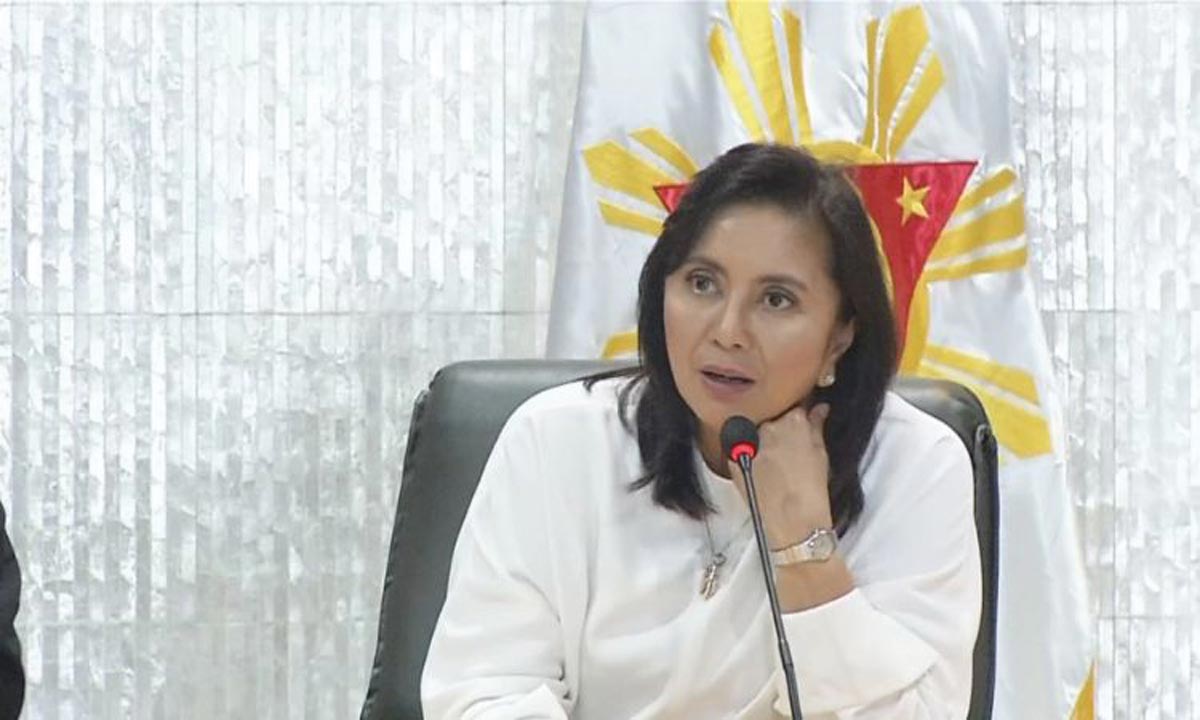
PHILIPPINE Vice President Leni Robredo on Wednesday, July 29, presented her list of suggestions on how the country may combat and contain the spread of the novel coronavirus in the country.
According to Robredo, waiting for a vaccine will not stop the spread of COVID-19.
“The pandemic won’t be stopped by just waiting for a vaccine. We need to stop its spread as soon as possible,”she said in a video posted on her Facebook page.
The statement came after President Rodrigo Duterte admitted in his fifth State of the Nation Address (SONA) on Monday, July 27 that he asked Chinese President Xi Jinping to prioritize the Philippines when providing the potential vaccine against COVID-19.
Robredo stressed that the Philippines may also contain the virus like Taiwan, South Korea, Vietnam and New Zealand did.
“We can also do that. We have enough capacity, resources and knowledge,” Robredo said in Filipino.
Data gathering
The Vice President said that gathering data is crucial in fighting COVID-19.
“Everything begins with data, which is the foundation of a right decision. From here, we can then determine who and what are the places that we need to focus on for mass testing, contact tracing, and support for communities and hospitals,” Robredo said in Filipino.
“If we respond well in the aspect of health care, then we can control community transmission, the reopening of the economy will be faster, safer, and more strategic, and job losses can be avoided,” she added.
Robredo also urged the government to clean up and fast-track the data-gathering methods on COVID-19.
She also cited the slow data validation process by the Department of Health (DOH), urging the agency to tap into several academic institutions that can help in the validation process.
In terms of the backlogs in releasing COVID-19 test results, the Vice President said determining which laboratories are recording these backlogs is needed so the government can move to augment their resources.
Locally-stranded Individuals
Robredo suggested for the government to provide free COVID-19 swab tests for locally-stranded individuals (LSIs) before they return to their home provinces, as well as temporary shelters that observe social distancing rules.
This was after 25 of the thousands of LSIs stranded in the Rizal Memorial Sports Complex in Manila were tested positive for COVID-19 over the weekend.
‘Whole-of-nation’ approach
Robredo believes in the government’s “whole of nation” approach in battling COVID-19, but she noted that the right people should be appointed to lead this fight.
“May we go beyond just giving new positions and titles to officials. The true whole-of-nation approach is about good management and a clear direction,”she said in Filipino.
“What direction should we take and who should lead the way? Public health professionals who truly understand the problem,” Robredo added.
The Vice President also stressed that hospitals should be the top priority in terms of funding.
“Ensure there is an equitable and systematic way of allocating resources to hospitals so they can keep up with the demands of the pandemic,” she said.
Not forgetting the country’s healthcare front-liners, Robredo pushed for free counseling services for them to protect their mental health.
“Implement a system to help protect front-liners from burnout, like setting up a process for relievers. We also agree that their salaries need to be increased in a time like this,”she said.
PH economy
According to Robredo, the government should work closely with the private sector, suggesting tax incentives for private companies that will provide aid during the pandemic.
“Use the force of the whole economic cluster, including the academe and others from the private sector, not only to craft risk assessment study, but also to ensure that the decision is based on the study,” she said.
She also said that the Social Amelioration Program (SAP) must be more systematic.
“As of now, there are different registries for basic sectors, for records of the poor, for social protection and social welfare services,” Robredo said.
“Collate these, validate and compare with the records on COVID-19 to determine who should be prioritized in SAP,” she added.





